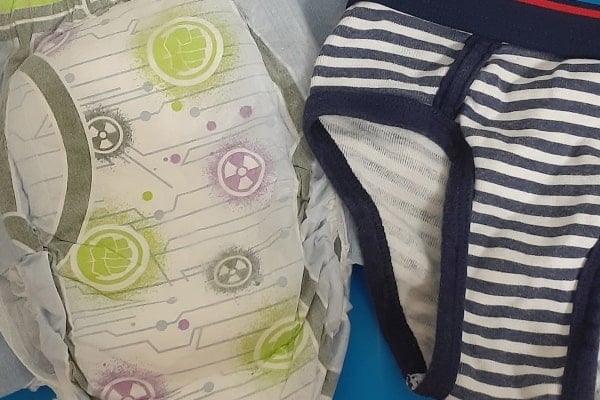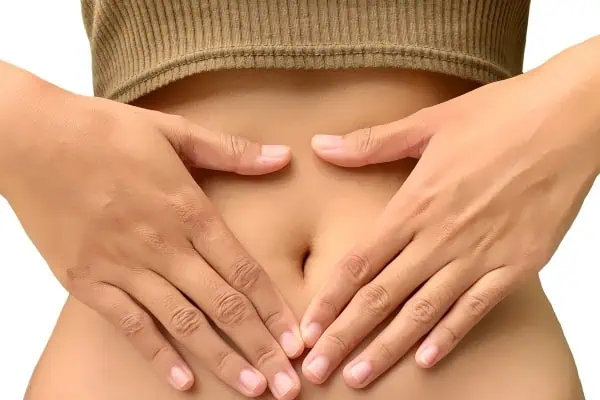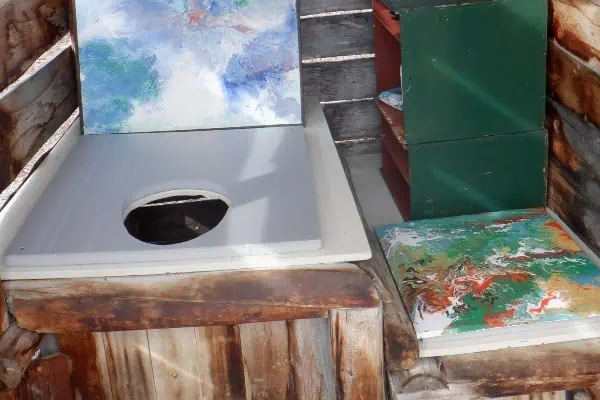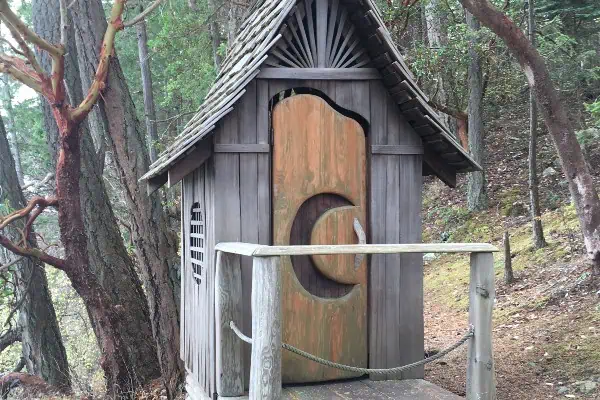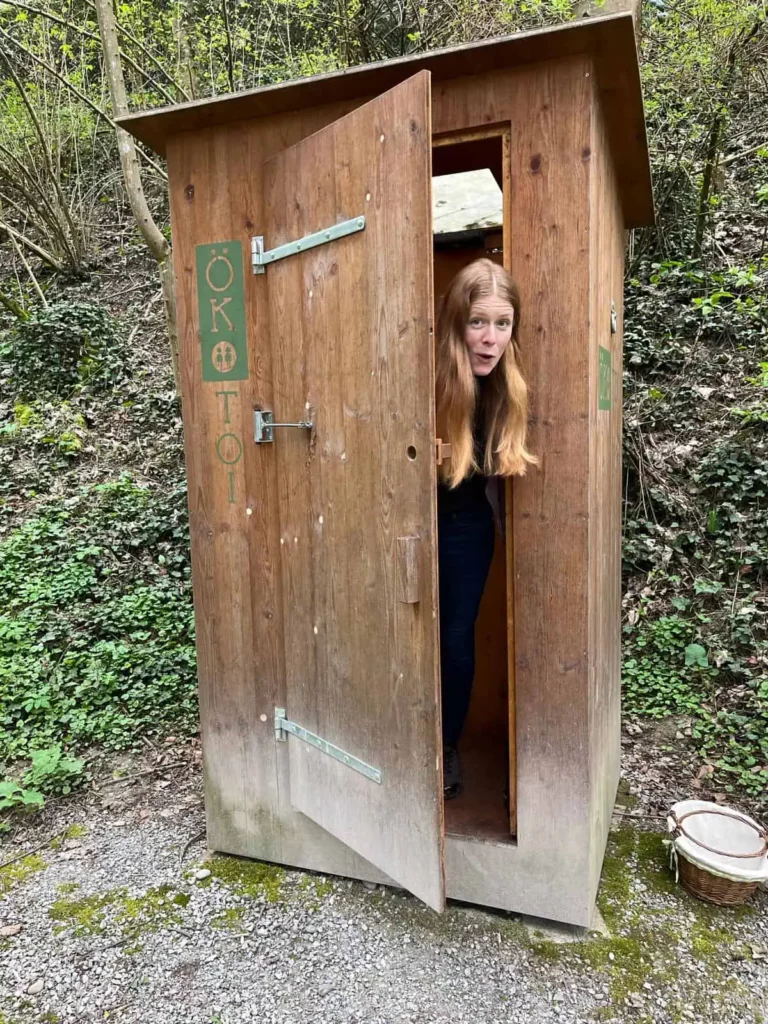
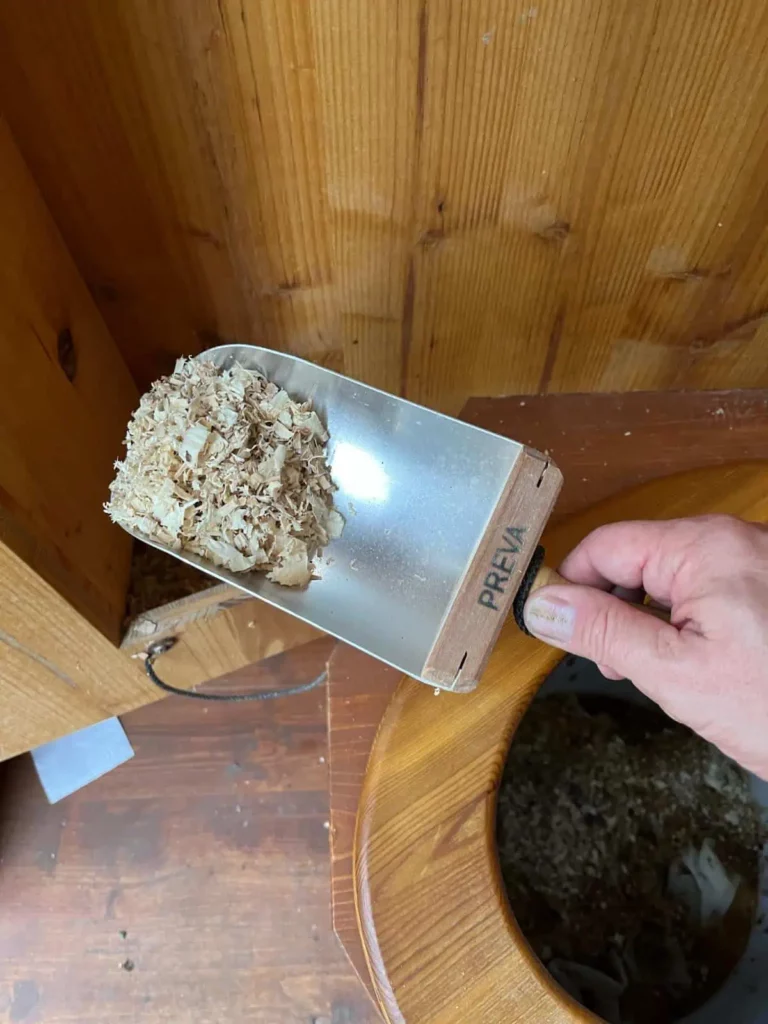
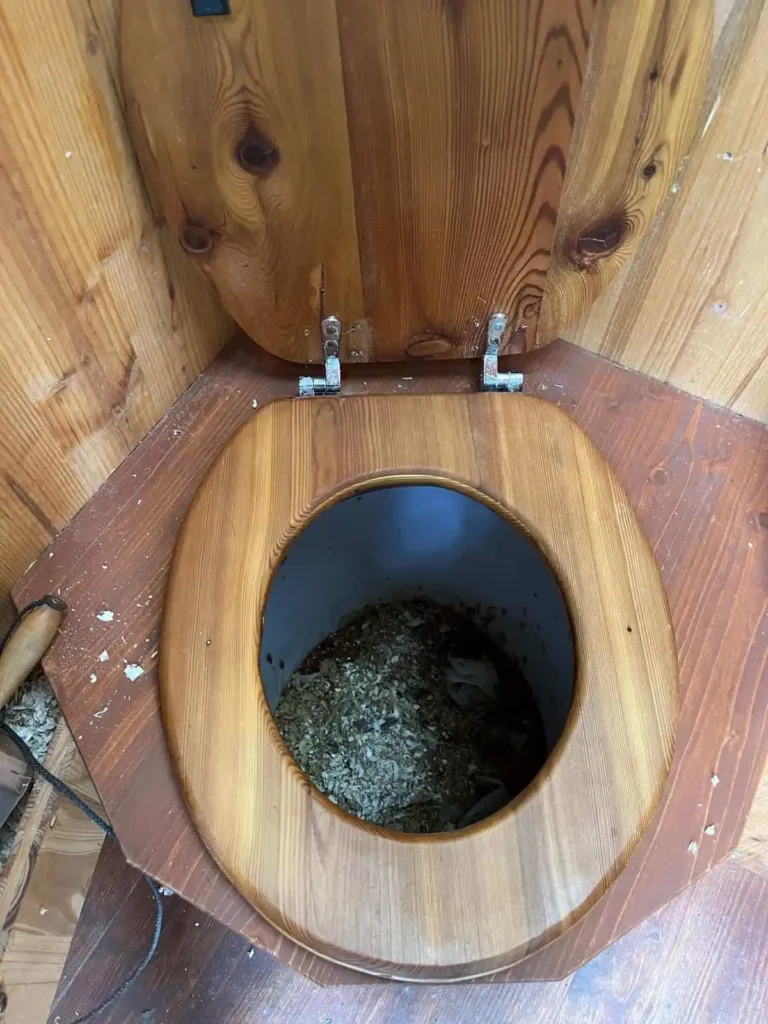
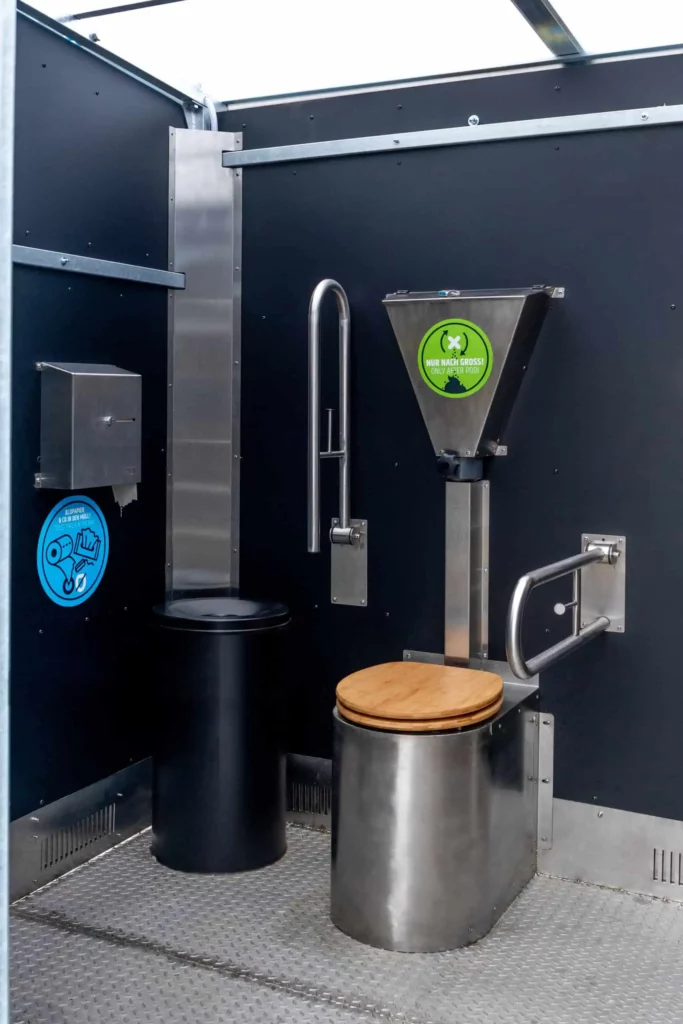
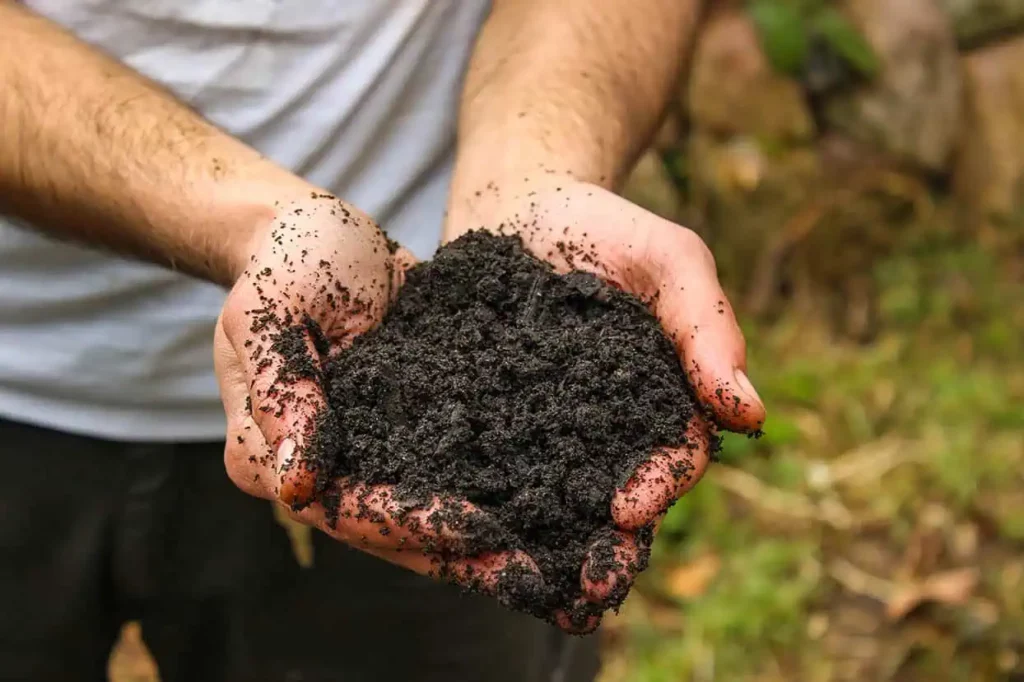
Today I did my small part for a sustainable environment—a small step, and it wasn’t even smelly: I left my poop in a compost toilet, which I discovered in Switzerland during a hike. It’s different from a typical outhouse. In one corner of the small wooden bathroom, there is a basket with sawdust hanging on the wall. There is a urinal and a toilet, and feces and urine are composted separately. This is how the compost toilet works: after you do a number two, you take a bit of sawdust and throw it in the toilet. That’s it. Sawdust is why the toilet doesn’t smell like poop.
Kompotoi is a company that rents and sells compost toilets all over Switzerland. The toilets are close to sites like old castles in the forest, and playgrounds. Kompotoi is not the only company doing this: Finizio, a German company, is also renting and selling compost toilets, especially for music festivals and events. The poo of one human could produce 150 litres of compost per year, Finzio states on their website. The company was founded by Florian August, in 2019. He was studying International Forest and Ecosystem Management when he had the idea of turning human feces into fertilizer—also called Night Soil, a historical euphemism for human waste used in agriculture.
The idea isn’t new: two hundred years ago, it was common to use human excrement to grow plants. Back then, people didn’t have water closets; they were farmers and added human excrement to animal dung. It was natural to put back into nature what was once food, to help grow new food. It was a cycle that was broken when sewage-treatment plants were invented. Humans in the modern world don’t have to smell or even look at their own poop. With one flush it’s all gone. But, rarely, one thinks about the three or four litres of drinking water that is wasted with that one flush.
Nutrition that is needed for plant growth occurs in human feces—phosphorus, calcium and magnesium. A study in Frontiers in Environmental Science showed that human fertilizer has the potential to replace up to 25 per cent of synthetic products. The problem: Human feces contains the remains of pharmaceutical products. Authors of this study screened human excrement for 310 chemicals, such as medicine and insect repellent, which were found in low concentrations in 6.5 per cent of the samples examined. And it’s not harmful for humans to use fertilizer based on feces, the study showed.
Scientists developed a test and grew different plants using human fertilizer, but the German government has a different opinion: it is illegal to put fertilizer made of human feces on the market in Germany and Switzerland. Companies such as Finizio are fighting to legalize the use of human excrement as fertilizer. They are publishing studies and a so-called fertilizer approval, to help make it legal, which means getting a permit to use human feces as fertilizer. According to these companies, it would solve many problems to switch from a linear system to a circular system where people wouldn’t waste as many resources on sewage-treatment plants.
From feces to fertilizer
Companies like Kompotoi and Finizio are collecting poop and urine separately. Human poo is treated by high temperatures of about 75 C, to get rid of bacteria, viruses and medical remains. After that, compost such as green leaves and grass are added, a machine stirs the compost every day for a few weeks so oxygen can get into and, in the end, the humus is strained to get rid of the remains of toilet paper, tampons and other garbage.
The fertilizer is used for studies and experiments. While it is illegal to put compost made of human feces on the market, it is legal to create it at home for your own garden. Compost toilets are not only made for the outdoors, but some types are also made to install in the bathroom, with rules and regulations.
It seems that 200 years ago, humans were more environmentally friendly than we are now.

